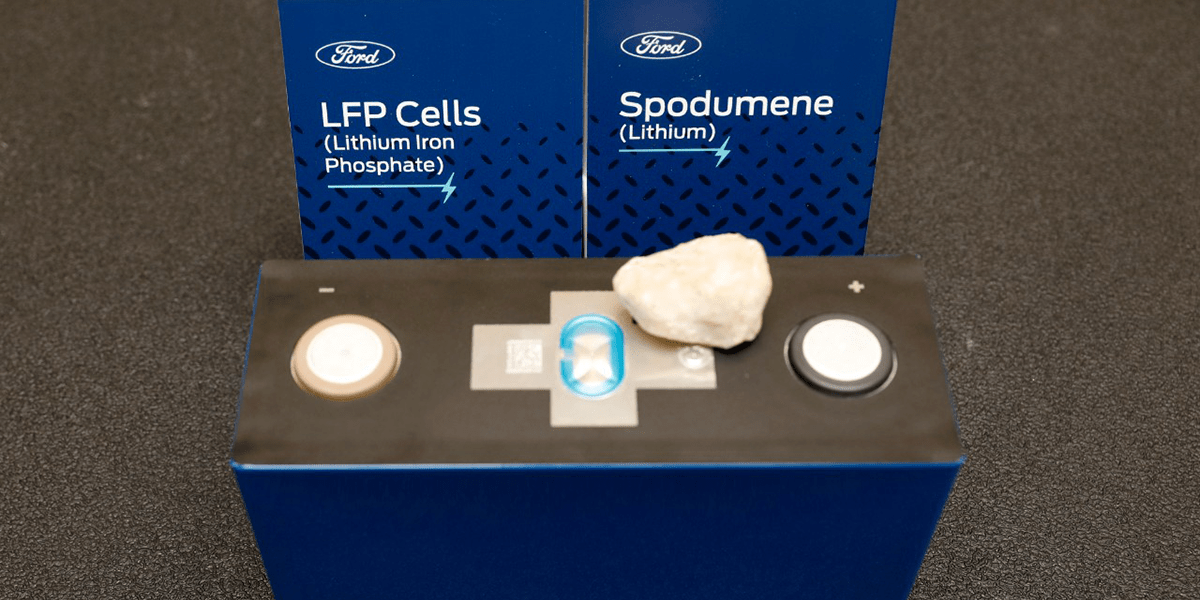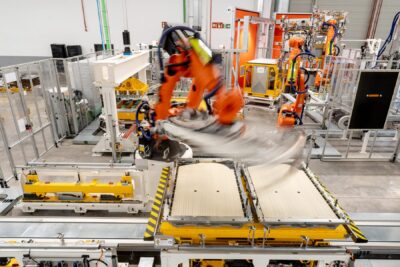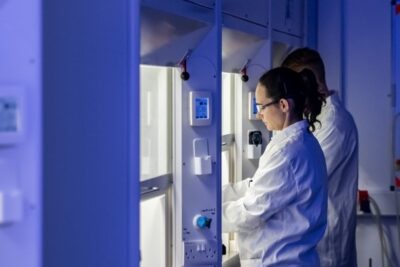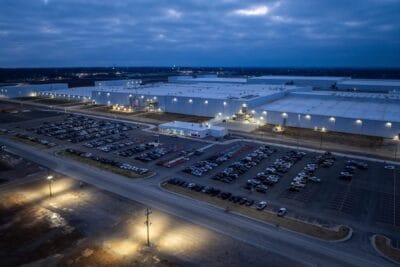Ford announces new battery factory in the US
Ford is investing 3.5 billion dollars in a new plant for lithium iron phosphate (LFP) batteries in the US state of Michigan. It is working with Chinese battery maker CATL, who will licence the technology to Ford and provide technical assistance.
The new plant is called BlueOval Battery Park Michigan, and is located in the city of Marshall. It is a fully Ford-owned subsidy and not a joint venture. Production will kick off as early as 2026. It will then have a capacity of 35 gigawatt hours (GWh), enough to supply about 400,000 EVs per year. And there is room for extension, Ford says.
One of the reasons why Ford chose to build its fourth battery plant in Michigan is that under the Inflation Reduction Act (IRA), Ford qualifies for significant US battery manufacturing subsidies. That could help it to reach its goal of eight per cent profit margins on its EV operations by 2026.
The Inflation Reduction Act requires, among other things, that automakers source 50 per cent of the critical minerals in e-car batteries from North America or US allies by 2024 and 80 per cent by the end of 2026. The rules would increase the cost of manufacturing batteries in the US versus importing battery materials from China.
Michigan approved over one billion dollars in incentives over 15 years to win the project. Virginia, which had also been in the running as a possible location for the new plant, withdrew its bit earlier this year. According to the local government, there was too much concern about potential Chinese influence.
LFP batteries will give Ford customers a second technology to choose from. So far, the carmaker has used nickel cobalt manganese (NCM) in its vehicles. Last year, Ford announced that it would begin using LFP batteries made in China by CATL in certain Mustang Mach-E electric SUVs and the Ford F-150 Lightning pickups offered in North America and Europe.
Since tensions between the US and China have again flared up since the announcement, producing batteries on its home turf could limit the risk for the US carmaker.
Ford’s plan to build the battery plant near Marshall, Michigan, hinges on a judgment that lower cost and faster recharging will attract many customers, including commercial fleet buyers, to accept the limitations of lithium-iron-phosphate, or LFP batteries.





0 Comments